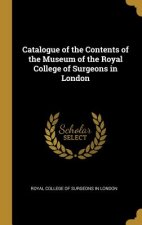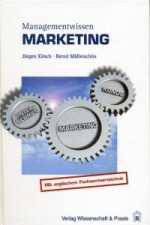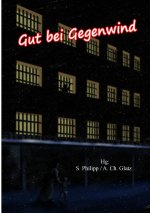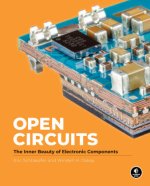
Kód: 12828277
Effect of psychological stress on human macrophages
Autor Ulrike Kübler
The present thesis aimed to investigate the effects of psychological stress on the microbicidal potential of human macrophages in order to shed more light on the mechanisms that underlie stress-induced delays in the progress of wo ... celý popis
- Jazyk:
 Angličtina
Angličtina - Väzba: Brožovaná
- Počet strán: 146
Nakladateľ: Cuvillier, 2012
- Viac informácií o knihe

Mohlo by sa vám tiež páčiť
-

David Suzuki
16.89 € -

Count Magnus and Other Ghost Stories
15.66 € -

Catalogue of the Contents of the Museum of the Royal College of Surgeons in London
39.11 € -

Managementwissen Marketing
53.86 € -

Gut bei Gegenwind
8.08 € -

Incir Cekirdeginde Ask
10.13 € -

Tokat
24.06 €
Darujte túto knihu ešte dnes
- Objednajte knihu a vyberte Zaslať ako darček.
- Obratom obdržíte darovací poukaz na knihu, ktorý môžete ihneď odovzdať obdarovanému.
- Knihu zašleme na adresu obdarovaného, o nič sa nestaráte.
Viac informácií o knihe Effect of psychological stress on human macrophages
Nákupom získate 88 bodov
 Anotácia knihy
Anotácia knihy
The present thesis aimed to investigate the effects of psychological stress on the microbicidal potential of human macrophages in order to shed more light on the mechanisms that underlie stress-induced delays in the progress of wound healing. For this purpose, two studies were conducted. In a first study, we implemented an in vitro assay to assess the microbicidal potential of human macrophages. In a second study, we set out to examine the influence of an acute psychological stressor on the microbicidal potential of human macrophages within a wound paradigm. STUDY I Quantitative and qualitative changes in circulating leukocytes are known to be linked to psychological states. However, there is little information regarding comparable results with leukocytes in peripheral tissues, such as associations between the microbicidal potential of macrophages and psychological states. In this study, we implemented an inexpensive, simple-to-use and valid in vitro method for measuring the microbicidal potential of ex vivo isolated human monocyte-derived macrophages (HMDM). The method was implemented and validated using 21 healthy male subjects (M = 35.0 yrs; SEM = 2.32). The assay principle is based on the reduction of 2-(4-Iodophenyl)-3-(4-nitrophenyl)-5-(2,4-disulfophenyl)-2H-tetrazolium (WST-1) by superoxide anions (O2-.), the first in a series of pathogen-killing reactive oxygen species produced by activated macrophages. First, freshly-isolated human monocytes were chemically stimulated to differentiate into macrophages. Subsequently, the HMDM were activated with phorbol 12-myristate 13-acetate to induce a microbicidal or O2- response. The WST-1 macrophage assay induced O2- responses by HMDM in all of the subjects. Furthermore, the WST-1 reduction scores correlated closely with results obtained by a reference method. The findings suggest that the in vitro method implemented investigates the microbicidal potential of ex vivo isolated HMDM in a simple, cost-efficient and valid manner. STUDY II Acute psychological stress induces changes in circulating blood leukocytes, but its effect on leukocytes in peripheral tissues is largely unknown. Activated tissue macrophages are important in early phases of wound healing, in particular by killing microbes. We hypothesized that (a) acute psychological stress reduces the microbicidal potential of HMDM, and (b) these reductions are related to stress hormone release. Forty-one healthy men (mean age 35 ± 1 yr) were randomized to either the stress (n = 24) or control group (n = 17). While the stress group underwent the Trier Social Stress Test (TSST; combination of mock job interview and mental arithmetic task), controls did not. Assessing the microbicidal potential, we investigated PMA-activated O2- production by ex vivo isolated HMDM immediately before and after stress, and during recovery up to 60 min after TSST / rest. Moreover, we repeatedly measured plasma norepinephrine and epinephrine levels as well as salivary cortisol. The groups differed significantly in their HMDM microbicidal potential (p = .01) in reaction to stress. Post hoc testing revealed that while HMDM of the control group displayed a significant increase in O2- production over time (p = .02), the cells of the stress group did not (p = .83). Immediately and 10 minutes after stress, O2- production by HMDM was lower in stressed subjects as compared to controls (pżs<.05). Statistical mediation testing revealed that higher norepinephrine levels mediated lower amounts of O2- responses. Our results suggest that acute psychological stress reduces the microbicidal potential of HMDM probably by norepinephrine release. This might have implications for stressinduced impairment in wound healing.
 Parametre knihy
Parametre knihy
35.63 €
- Celý názov: Effect of psychological stress on human macrophages
- Autor: Ulrike Kübler
- Jazyk:
 Angličtina
Angličtina - Väzba: Brožovaná
- Počet strán: 146
- EAN: 9783954041084
- ISBN: 3954041081
- ID: 12828277
- Nakladateľ: Cuvillier
- Hmotnosť: 181 g
- Rozmery: 210 × 148 × 8 mm
- Dátum vydania: 25. May 2012
Obľúbené z iného súdka
-

Dune
13.10 € -

Haunting Adeline
30.81 € -

Berserk Deluxe Volume 2
52.63 € -

White Nights
3.57 € -24 % -

Powerless
12.48 € -4 % -

Atomic Habits
15.97 € -15 % -

Dune Messiah
9 € -20 % -

Berserk Deluxe Volume 3
52.83 € -

One Day
12.59 € -13 % -

Berserk Deluxe Volume 1
44.43 € -13 % -

Iron Flame
16.27 € -19 % -

Surrounded by Idiots
10.13 € -16 % -

Harry Potter and the Prisoner of Azkaban (Minalima Edition)
27.84 € -32 % -

Gravity Falls Journal 3
22.01 € -

Heaven Official's Blessing: Tian Guan Ci Fu (Novel) Vol. 1
22.01 € -

The Creative Act
24.06 € -

Dune
9.72 € -19 % -

Hunting Adeline
31.84 € -

A Little Life
17.50 € -

Children of Dune
8.80 € -22 % -

Heaven Official's Blessing: Tian Guan Ci Fu (Novel) Vol. 2
25.28 € -

Bungo Stray Dogs, Vol. 8 (light novel)
16.07 € -1 % -

Percy Jackson and the Olympians 5 Book Paperback Boxed Set
47.81 € -

Solo Leveling, Vol. 1
21.50 € -

The Prisoner's Throne
10.64 € -21 % -

Court of Thorns and Roses
9.31 € -22 % -

Cry Baby Coloring Book
10.85 € -4 % -

Fourth Wing
16.68 € -16 % -

Icebreaker
9.41 € -16 % -

Berserk Deluxe Volume 6
47.81 € -6 % -

Avatar, the Last Airbender: The Kyoshi Novels (Box Set)
27.54 € -33 % -

The 48 Laws of Power
26.92 € -1 % -

House of Leaves
23.24 € -4 % -

Twisted Lies
9.72 € -19 % -

Dune Messiah
12.69 € -12 % -

No Longer Human
16.99 € -

48 Laws Of Power
22.62 € -5 % -

Twisted Games
9.41 € -22 % -

Caraval Paperback Boxed Set
39.83 € -8 % -

Solo Leveling, Vol. 2
22.42 € -

Open Circuits
34.40 € -16 % -

Berserk Deluxe Volume 5
51.30 € -

Heaven Official's Blessing: Tian Guan Ci Fu (Novel) Vol. 3
16.78 € -19 % -

Berserk Deluxe Volume 4
46.59 € -9 % -

Court of Mist and Fury
9.31 € -20 % -

SOLO LEVELING V08
22.42 € -

English File Upper Intermediate Multipack A (4th)
22.21 € -

CHAINSAW MAN V14
11.25 € -14 % -

Before the Coffee Gets Cold
10.44 € -20 %
Osobný odber Bratislava a 2642 dalších
Copyright ©2008-24 najlacnejsie-knihy.sk Všetky práva vyhradenéSúkromieCookies



 21 miliónov titulov
21 miliónov titulov Vrátenie do mesiaca
Vrátenie do mesiaca 02/210 210 99 (8-15.30h)
02/210 210 99 (8-15.30h)